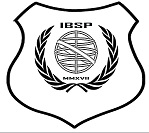A utilização das redes sociais como ferramenta de informação e aproximação popular para desmistificação da atividade-fim da Polícia Militar
DOI:
https://doi.org/10.36776/ribsp.v6i14.182Keywords:
redes sociais, Polícia Militar, Estado do TocantinsAbstract
This article deals with the technological revolution and its various connections provided access to information by modern society and consequently boosted all areas of action and social interaction, such as: economic, cultural, leisure, social, teaching, among others. Through the internet network, social media have become a tool of approximation, information, interaction, ease and dynamism for the dissemination of content. Faced with this reality, military corporations operate in different scenarios of society and in a sociocultural context of intense changes that require frequent updating of strategic planning and updated practices of the operational activity of the Military Police, the need for this research project was glimpsed. In this sense, this work demonstrates how the use of social networks by the Military Police of the State of Tocantins can help to approach the community and the effectiveness of information. To this end, the methodology used was a bibliographic review, through materials relevant to the theme that have already been published, especially in digital media.
References
COELHO, M. de F.; GOSLING, M. de S. Comentar bem ou mal na internet? O engajamento de viajantes em reviews de hotéis. TURYDES, Turismo y Desarrollo Local, v. 8 n. 19, 2015.
DIAS, P. Viver na sociedade digital: Tecnologias digitais, novas práticas e mudanças sociais. Cascais: 1ª Ed., Princípia, 2014.
GERHARDT, T. E.; SILVEIRA, D. T. (Org.). Métodos de pesquisa. Porto Alegre, RS: Universidade Federal de Rio Grande do Sul, 2009.
MARCINEIRO, N. Polícia comunitária: construindo segurança nas comunidades. Florianópolis: Insular, 2009. 232 p.
MARCONI, M. A.; LAKATOS, E. M. Técnicas de pesquisa. São Paulo: 6.Ed., Atlas, 2002.
MARTINO, L. M. S. Teoria das Mídias Digitais: Linguagens, ambientes e redes. 2. Ed. Petropolis, RJ: Vozes, 2014.
MEZZAROBA, O.; MONTEIRO, C. S. Manual de metodologia da pesquisa no Direito. São Paulo: 5.Ed., Saraiva, 2009.
MIRANDA, A. C. As redes sociais da Polícia Militar do estado de Rondônia: um estudo de caso sobre a desconcentração da divulgação institucional pelo Facebook. Revista Silva, v. 3, n. 2, p. 32-50, 2019.
O’REILLY, T. What Is Web 2.0: Design Patterns and Business Models for the Next Generation of Software. 2005. Disponível em:<https://www.oreilly.com/pub/a/web2/ar chive/what-is-web-20.html>. Acesso em: 17 jan. 2022.
RAMOS, P. E. G. T.; DE OLIVEIRA MARTINS, A. Reflexões sobre a rede social Instagram: do aplicativo à textualidade. Texto Digital, v. 14, n. 2, p. 117-133, 2018. DOI: https://doi.org/10.5007/1807-9288.2018v14n2p117
ROQUE, G. Redes de Conhecimento e a Formação a Distância. Rio de Janeiro: Boletim Técnico do SENAC. 36, 2010.
SILVA, C. V.; LOBÃO, M. S. P. Youtube como ferramenta de aperfeiçoamento de bombeiros militares. Revista Contemporânea de Educação, v. 15, n. 34, p. 193- 218, 2020. DOI: https://doi.org/10.20500/rce.v15i34.34939
VICENTE, C. Redes Sociais online e consumos culturais: Facebook, um estudo de caso. Lisboa:ISCTE-IUL. 2012. Dissertação de mestrado. Disponível em: http://hdl.handle.net/10071/5158>. Acesso em 18 jan. 2022.
TOCANTINS. Comunicação Organizacional. Curso de Aperfeiçoamento de Praças. Módulos 1 a 4. 25p. 2022.
Downloads
Published
How to Cite
Issue
Section
License
Copyright (c) 2023 Lara Francielly Santos Tavares, Kellen Aguiar Fragoso Pimentel, Maxiany Brito Amorim

This work is licensed under a Creative Commons Attribution-NonCommercial 4.0 International License.



